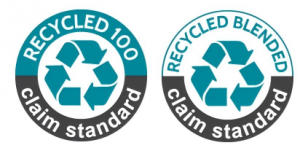Introduction
Over the past few decades, the rise of fast fashion has provided significant convenience to consumers but has also led to a massive accumulation of textile waste, placing a heavy burden on the planet's ecosystem. Statistics show that tens of millions of tons of textiles are incinerated or landfilled annually, wasting valuable resources and emitting large amounts of greenhouse gases. Fortunately, the rapid development of textile recycling technology offers new solutions to this dilemma. Textile recycling refers to the process of treating discarded textiles or production scraps through physical, chemical, or other methods, reintegrating them into the production process to create new fibers, yarns, or fabrics. As governments worldwide intensify their green initiatives and regulatory frameworks to promote textile recycling, industry standards and certifications like GRS and RCS have become essential tools for companies seeking to demonstrate their commitment to sustainability. By aligning with these government-led green policies and obtaining credible certifications, we can not only effectively reduce resource waste and dependence on virgin resources but also lower energy consumption and pollutant emissions.
Regulatory Leadership: Advancing Textile Recycling on a Global Scale
Governments and regional organizations worldwide are actively formulating and implementing relevant regulations to promote the green transition of the textile industry, with a particular focus on the use of recycled materials.European Union (EU)In the EU, the environmental and climate impact of textile consumption is ranked fourth, following food, housing, and transportation. The textile industry is the third-largest consumer of water and land resources and the fifth-largest contributor to raw material use and greenhouse gas emissions. In response, the EU has issued the “Strategy for sustainable and circular textiles”, aiming to steer the textile industry toward a more environmentally friendly and competitive future. The European Commission’s 2030 vision for the textile industry states that all textiles sold within the EU must demonstrate durability, repairability, and recyclability, primarily made from recycled fibers, and free of harmful substances.United States (US)In 2024, California passed the “Responsible Textile Recovery Act”, establishing a statewide Extended Producer Responsibility Program to reduce the volume of post-consumer apparel and textiles sent to landfills. The Act promotes reuse, repair, and conversion into recycled products.ChinaAs the world’s largest producer and consumer of textiles, China has prioritized the green development of its textile industry. The “14th Five-Year Plan for Circular Economy Development” highlights the importance of recycling waste textiles, emphasizing the need to improve resource utilization efficiency and promote the substitution of virgin resources with recycled resources. Additionally, the “Guiding Opinions on High-Quality Development of the Industrial Textile Sector”, jointly issued by the Ministry of Industry and Information Technology and other departments, encourages enterprises to enhance the recycling of waste textiles, increase the application of recycled and reused fibers in key areas, and actively promote product recycling technologies to expand the scale of industrial textile recycling.
Industry Standards and Certification: Establishing Credible Support Mechanisms for Textile Recycling
In addition to government regulations, the textile industry itself is actively establishing and refining recycling standards, resulting in the emergence of several key certification systems. These certifications provide enterprises with clear guidelines and offer consumers trustworthy labels. Among the most prominent are the Global Recycled Standard (GRS) and the Recycled Claim Standard (RCS), both under Textile Exchange.
Global Recycled Standard (GRS)
GRS is one of the most comprehensive and stringent certification standards for recycled materials globally. It not only focuses on the content of recycled materials but also imposes strict requirements on supply chain traceability, social responsibility, environmental management, and chemical management. The goal of GRS is to increase the use of recycled materials in products while minimizing or eliminating production-related harm.
GRS Specific Requirements
- Recycled Material Content: Products must contain at least 20% recycled materials to qualify for GRS certification. Products must contain at least 50% recycled materials to qualify for the use of the GRS label.
- Supply Chain Traceability: Every stage of the supply chain, from the recycling phase to the final B2B transaction (including producers, traders, and brand owners), must be certified to ensure the integrity and traceability of recycled materials.
- Social Responsibility: Certified enterprises must comply with GRS standard regarding wages, benefits, employment conditions, working hours, health and safety, and labor standards.
- Environmental Management: Enterprises are required to establish an environmental management system and meet GRS standards for energy use and waste management.
- Chemical Management: Chemicals used in the production of GRS-certified products must have detailed inventories, Safety Data Sheets (SDS), and comply with GRS restricted substances requirements.
Recycled Claim Standard (RCS)
RCS primarily focuses on verifying the recycled material content in products. Its goal is to increase the use of recycled materials in products.
RCS Specific Requirements
- Recycled Material Content: Products must contain at least 5% recycled materials to qualify for RCS certification. Products with recycled content between 5% and 95% are eligible for the Recycled Blended label. Products with recycled content ≥ 95% are eligible for the Recycled 100 label.
- Supply Chain Traceability: Similar to GRS, RCS requires verification of the entire supply chain, from the production of recycled materials to the final B2B transaction.
In response to increasing environmental challenges and rising consumer demand for sustainable products, textile recycling has become an inevitable trend in the industry’s development. GRS/RCS certifications establish a transparent and credible certification system for textile recycling. By obtaining GRS/RCS certification, enterprises can demonstrate their firm commitment to sustainable development, enhance their brand reputation, and effectively address consumer demand for sustainable products, thereby earning consumer trust and loyalty.
Additionally, certification helps enterprises optimize supply chain management and stand out in a highly competitive market. As a professional sustainability certification consulting company, REACH24H Consulting Group provides enterprises with one-stop services for GRS/RCS certification, including pre-application consultation, application submission, factory audit assistance, and final certificate acquisition. REACH24H provides meticulous oversight throughout the process, ensuring enterprises achieve certification efficiently and effectively. Please feel free to contact us at customer@reach24h.com.



